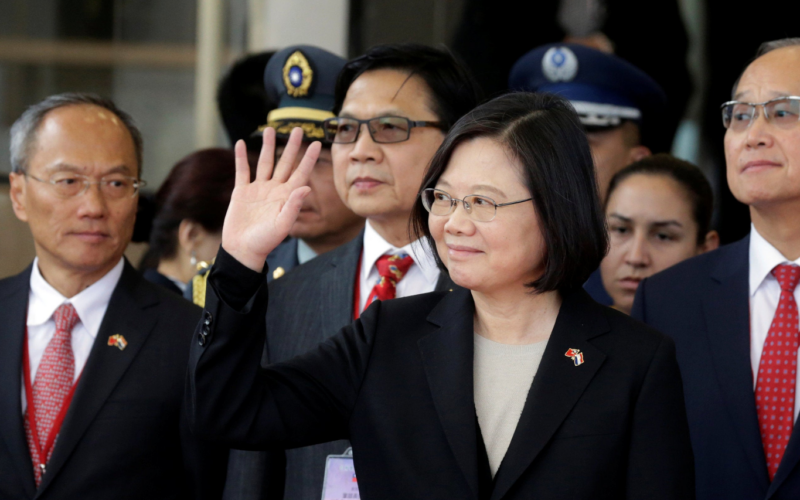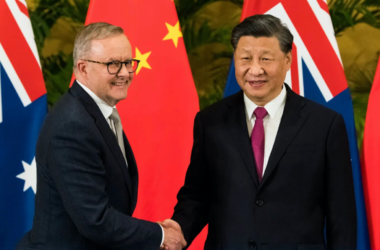President-elect Lai Ching-te of Taiwan expressed his desire for unwavering support from the United States during a meeting with the first group of U.S. lawmakers to visit Taipei since his recent election victory. Lai, a member of Taiwan’s ruling Democratic Progressive Party (DPP) and the current vice president, is set to assume office on May 20. Despite China’s opposition, Lai remains committed to maintaining peace and stability in the region, emphasizing the shared values of democracy and freedom between Taiwan and the United States.
Meeting with leaders of the U.S. House of Representatives Taiwan Caucus, including Republican Representative Mario Diaz-Balart and Democratic Representative Ami Bera, Lai underscored the importance of the deep-rooted democratic and freedom values that Taiwan shares with the U.S. He highlighted Taiwan’s strategic significance as a frontline defender against China’s authoritarian expansionism, positioning the island as a critical location within the first island chain.
Acknowledging Taiwan’s crucial role in maintaining regional and global peace and prosperity, Lai emphasized the significance of stability across the Taiwan Strait. He expressed his commitment to upholding the cross-Taiwan Strait status quo characterized by peace and stability. Given the strategic importance of Taiwan, Lai called for continued support from the United States to ensure the region’s security and well-being.
President-elect Lai urged the United States to persist in offering firm support to Taiwan, calling for deeper bilateral cooperation and strengthened relations. He emphasized the importance of collaboration with other democratic partners to collectively safeguard peace and prosperity in the region. Additionally, Lai expressed his hope for continued support from U.S. Congress, specifically encouraging the enhancement of Taiwan’s self-defense capabilities.
In response to Lai’s concerns, Representative Mario Diaz-Balart reassured him that U.S. support for Taiwan is solid, real, and “100% bipartisan.” Diaz-Balart conveyed a message of unwavering backing from the United States Congress, emphasizing the commitment to stand by Taiwan in the face of challenges and opposition.
Taiwan’s government, led by President Tsai Ing-wen, rejects China’s claims of sovereignty over the island, asserting that the decision about Taiwan’s future lies solely with its people. Despite the absence of formal diplomatic ties, the United States remains Taiwan’s most crucial international supporter and arms provider.
China has consistently opposed U.S. support for Taiwan, considering it a sensitive issue in Sino-U.S. relations. The recent meeting between President-elect Lai and U.S. lawmakers adds to the existing tensions, with China branding Lai as a dangerous separatist. Despite the warnings, the United States continues to back Taiwan, showcasing the complex dynamics in the Taiwan Strait.
Last week, President-elect Lai and President Tsai Ing-wen hosted a delegation of former senior U.S. officials, sent by President Joe Biden on an unofficial visit. This gesture further signifies the enduring ties between the United States and Taiwan, demonstrating the Biden administration’s commitment to supporting Taiwan’s democratic values and its role in maintaining regional stability.
President-elect Lai Ching-te’s call for continued strong U.S. support underscores the evolving dynamics in the Taiwan Strait. As Taiwan faces ongoing challenges from China and strives to maintain its autonomy, the unwavering support from the United States remains a cornerstone of Taiwan’s international relations. The diplomatic interactions between Lai and U.S. lawmakers highlight the importance of collaborative efforts to uphold shared values of democracy, freedom, and regional stability in the face of geopolitical complexities.








